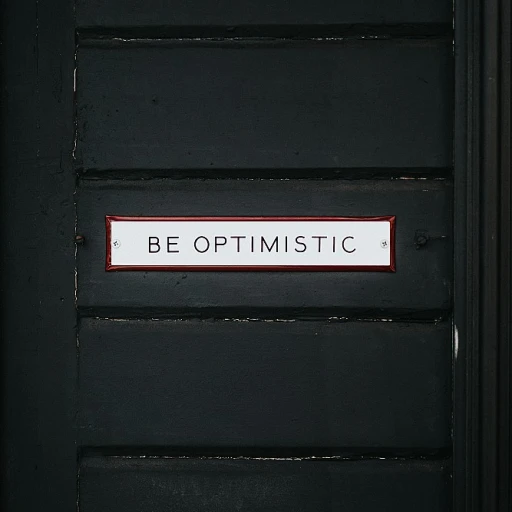
Understanding the Role of an Organizational Consultant
Exploring the Vital Contributions of an Organizational Consultant
In today's dynamic business environment, the role of an organizational consultant is indispensable in fostering growth and innovation. With a keen focus on organizational development and change management, consultants work tirelessly to enhance corporate structures and HR leadership within companies. Organizational consultants bring a wealth of experience in human resources and offer tailored services aimed at improving organizational performance. Their expertise in management, coupled with their strategic insight, enables them to help businesses navigate complex challenges and drive sustainable change. They act as trusted partners to Chief Human Resources Officers (CHROs), offering guidance on critical initiatives like talent management, organizational design, and leadership development. A robust understanding of a company’s structure allows consultants to assess existing processes and design effective change management strategies. By analyzing performance data and organizational metrics, they identify areas for improvement, ensuring that changes align with the organization’s mission and goals. In their quest to facilitate business growth, consultants conduct detailed assessments and propose customized programs to boost employee engagement and leadership capabilities. Their contributions are vital for aligning human resources strategies with the overarching goals of the organization, ensuring that the workforce is adequately equipped to meet future challenges. For those looking to delve deeper into the intricacies of organizational consulting and how it shapes HR leadership, understanding attrition rates is a crucial aspect as it provides insight into workforce dynamics, a key focus area for both CHROs and consultants alike. Whether working in South Carolina, the District of Columbia, or beyond, the impact of organizational consultants remains profound, offering endless opportunities for learning and development.Key Skills Required for an Effective Organizational Consultant
Essential Competencies for Organizational Consultants
Organizational consultants play a vital role in business environments, helping organizations navigate complex challenges. Their skills aren’t merely technical but extend to strategic and interpersonal aptitudes that are crucial for effective human resources leadership. A critical skill set includes proficiency in organizational design and change management. Consultants must evaluate existing structures and develop tailored solutions that improve business performance. This requires a thorough understanding of organizational development concepts and the ability to translate them into actionable frameworks. Moreover, these consultants are expected to excel in data analysis and interpretation. They leverage data to assess organizational needs, design programs, and measure their impact on employee engagement and talent management. Adeptness in using data not only enhances credibility but also aids in making informed decisions that align with the organization's objectives. Communication and negotiation skills are equally important. Organizational consultants often liaise with executives, human resources leaders, and staff, acting as a bridge to ensure alignment and buy-in for development programs. Their role as business partners requires them to advocate for change while fostering a collaborative atmosphere. Additionally, organizational consultants must possess leadership and executive coaching abilities. Facilitating leadership development ensures that those in management positions can sustain change initiatives long-term. This skill empowers human resources to drive organizational leadership practices that contribute to overall success. For those considering a career in this field, education in business administration, human resources, or social services provides a solid foundation. Most development consultants continue learning through real-world experience and formal programs in leadership and organizational change. Further insights into the necessary skills and proficiencies of organizational consultants can be explored here, shedding light on their impact within human resources leadership.Challenges Faced by Chief Human Resources Officers
Overcoming Obstacles in HR Leadership
Human Resources Officers frequently encounter several challenges as they strive to optimize the performance and capabilities of their organizations. These challenges often extend into areas such as organizational change and leadership development. By understanding these issues, organizations can fortify their management strategies and uphold robust organizational design. Key challenges faced by HR leaders include:- Change Management: Successfully navigating and implementing organizational change is a perennial challenge. It requires adept skills in change management, ensuring that employees are engaged and the transition is smooth.
- Talent Management: Developing and retaining talent in a competitive job market is critical. HR leaders must design strategic programs to attract top talent and foster leadership development within the organization.
- Data Utilization: With the surge in data availability, utilizing this information to drive business decisions can be daunting. Establishing robust data management practices is essential for enhancing organizational performance.
- Employee Engagement: Encouraging high levels of employee engagement and satisfaction can be challenging, yet it is vital for sustaining productivity and morale.
- Alignment with Business Goals: Ensuring that HR strategies are aligned with broader business objectives requires the HR department to serve not just as a support function but as a key business partner.
Strategies for Effective Collaboration Between CHROs and Consultants
Enhancing CHRO-Consultant Collaboration for Organizational Success
For organizations to effectively navigate today's dynamic business landscape, the collaboration between Chief Human Resources Officers (CHROs) and organizational consultants must be strategic and synergistic. This partnership is critical in fostering organizational development and ensuring optimal human resources management. To achieve meaningful results, a few strategies can be employed.- Align Goals and Expectations: At the outset, both the CHRO and the consultant should work closely to define their objectives and desired outcomes. This alignment ensures that all efforts are directed towards the same organizational goals, whether they focus on talent management, leadership development, or organizational design.
- Leverage Data for Decision Making: Utilizing data-driven insights is a powerful strategy in enhancing collaboration. Consultants can help CHROs by providing analytics that inform business decisions, improve employee engagement, and enhance overall performance. Data analytics facilitate informed decision-making in areas like organizational change and leadership development.
- Embrace Change Management: Consultants specializing in change management can provide frameworks and methodologies that support CHROs in leading organizational change effectively. This partnership is crucial in adapting to new business environments and implementing innovative leadership strategies. By working together, they ensure the organization is equipped to handle transformation challenges.
- Provide Continuous Education and Development: To enhance the CHRO-consultant partnership, continuous learning opportunities, such as executive coaching and professional development programs, should be prioritized. These initiatives not only enhance the skills and capabilities of HR teams but also foster a culture of continuous improvement within the organization.
- Foster Open Communication: Effective collaboration is built on transparent and open communication channels. Regular check-ins and feedback sessions between CHROs and consultants ensure that any adjustments necessary for achieving organizational goals are promptly addressed.
Case Studies: Successful Interventions by Organizational Consultants
Examples of Successful Organizational Consulting Interventions
In the dynamic field of human resources, organizational consultants have played pivotal roles in transforming the leadership and performance of various businesses. By integrating effective strategies and implementing targeted interventions, consultants drive impactful changes that enhance overall organizational performance.
One such example involves an organizational consultant working with a mid-sized manufacturing company in South Carolina. The company was facing challenges in employee engagement and performance levels. By leveraging data analytics and organizational design skills, the consultant designed a comprehensive employee engagement program, which included executive coaching and talent management. This intervention not only improved employee morale but also resulted in a 20% increase in productivity within six months.
Similarly, a large non-profit organization located in the District of Columbia benefitted from the expertise of an organizational development consultant. The organization was undergoing a major shift in its social services programs, necessitating a change management strategy. The consultant, acting as a strategic business partner, facilitated leadership development workshops and organizational change initiatives. This proactive approach helped streamline operations, enhancing service delivery and ensuring sustainable growth for the organization.
In another case, a financial services company sought an organizational consultant to assist with performance management and organizational leadership. By focusing on developing leadership skills and refining HR processes, the consultant was able to design a tailored performance review and development program. This program improved job satisfaction and retention rates, and ultimately contributed to a more agile and resilient organizational culture.
The successes achieved through the efforts of organizational development consultants highlight the significant impact of strategic consulting services on human resources leadership and organizational change. By addressing specific issues and facilitating collaboration with Chief Human Resources Officers, these consultants help organizations navigate the complexities of HR management and achieve their business objectives.
Future Trends in HR Consulting and Leadership
Emerging Paradigms in HR and Consulting
The landscape of HR consulting and leadership is constantly evolving, influenced by the shifting demands of businesses and organizations. Development consultants are increasingly relied upon for their ability to drive organizational change effectively, leveraging their comprehensive understanding of business dynamics. By fostering an environment conducive to leadership development and organizational design, these consultants reinforce a company's agile adaptation to emerging trends.
In the realm of human resources, there is a growing emphasis on utilizing data analytics and performance metrics as integral components of strategic decision-making. Companies are implementing data-driven change management programs to enhance employee engagement and optimize performance. This trend underscores the need for skills in both analytics and business administration, ensuring that consultants maintain a holistic view of an organization's trajectory.
As organizations face the complexities brought on by globalization and technological advancements, the role of organizational consultants is pivotal in designing systems that align with these developments. The integration of technology into organizational practices streamlines processes and offers support in skill development, ensuring workforce capabilities align with innovative objectives.
In geographical regions like South Carolina and the District of Columbia, organizations are tapping into local markets for tailored consulting services that address specific regional needs. This indicates a trend towards localized organizational development strategies to better meet the cultural and economic nuances of the area.
The outlook for HR consulting is centered around sustainable growth and adaptability, building organizational leadership that prioritizes human-centric approaches. As the importance of social equity grows stronger in business administration and social services, consultants are instrumental in guiding leadership platforms through these transformative phases, creating workplaces that are both inclusive and innovative.













